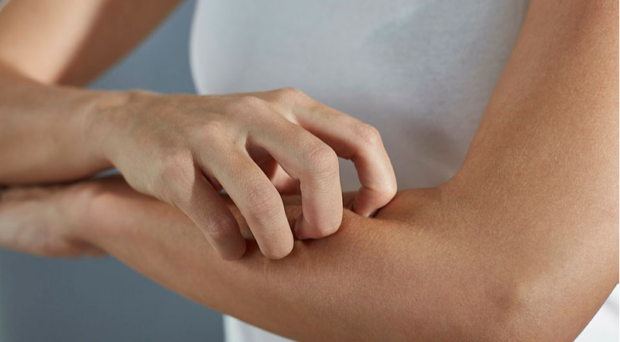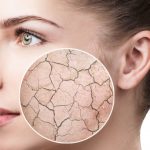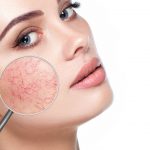What is psoriasis?
- Psoriasis is a chronic, inflammatory condition, which affects the skin’s surface. The condition causes inflamed, red, flaky and itchy skin, often around the knees, elbows and scalp.
What are the signs and symptoms of psoriasis?
- Red patches of skin covered with thick, silvery scales
- Small scaling spots (commonly seen in children)
- Dry, cracked skin that may bleed or itch
- Itching, burning or soreness
- Thickened, pitted or ridged nails
- Swollen and stiff joints
What causes psoriasis?
Psoriasis is an immune-mediated disease that causes inflammation in the body, people with psoriasis have an increased production of skin cells resulting in this flaky appearance.
People with psoriasis tends to go through cycles, flaring for a few weeks or months, then subsiding for a while or going into remission.
What are the types of psoriasis?
There are several types of psoriasis, including:
- Plaque psoriasis. The most common form, plaque psoriasis causes dry, raised, red skin patches (lesions) covered with silvery scales. The plaques might be itchy or tender, and there may be few or many. They usually appear on elbows, knees, lower back and scalp.
- Nail psoriasis. Psoriasis affects the fingernails and toenails.
- Guttate psoriasis.This type primarily affects young adults and children.
- Inverse psoriasis.This mainly affects the skin folds of the groin, buttocks and breasts.
- Pustular psoriasis. rare form of psoriasis
- Erythroderma psoriasis. The least common type of psoriasis, erythroderma psoriasis can cover your entire body with a red, peeling rash that can itch or burn intensely.
- Psoriatic arthritis. Psoriatic arthritis causes swollen, painful joints that are typical of arthritis.
PSORIASIS TRIGGERS:
- Infections
- Weather, especially cold, dry conditions
- Injury to the skin, such as a cut or scrape, a bug bite, or a severe sunburn
- Stress
- Smoking and Heavy alcohol consumption
- Certain medications — including lithium, high blood pressure medications and antimalarial drugs
How common is psoriasis?
The condition is believed to affect 1 in 50 people, affecting all ages, races and genders. A large percentage of people are diagnosed below the age of 35
How to treat psoriasis?
There’s no cure for psoriasis, but a range of treatments can improve symptoms and the appearance of skin patches.
In most cases, the first treatment used will be a topical treatment, such as vitamin D analogues or topical corticosteroids. Topical treatments are creams and ointments applied to the skin.



